Russia has terminated a deal with Ukraine which allowed it to export grain through the Black Sea, potentially plunge the world into another round of food crisis. First inked in July 2022, the U.N.-brokered Black Sea Grain Initiative enabled Ukraine to supply world markets with over 32 million tonnes of food products after Moscow invaded the country, a key grain exporter.
Controlled by the Russian Navy, the Ukrainian ports of Odesa, Chornomorsk and Yuzhny (Pivdennyi) in the Black Sea were being blocked from exporting tonnes of grain, including sunflower, maize, wheat and barley. As a result, world food prices skyrocketed. However, when a deal for the grain shipments was struck in July last year, the prices of food declined by about 20%.
Today, a year after the deal was brokered by the U.N. and Turkiye expired (July 17), the Kremlin scraped the agreement – accusing Western nations of failing to honour the terms and conditions. Essentially, the Black Sea Grain Initiative is a “two part agreement” signed by Russia, Ukraine, Turkiye, and the United Nations to facilitate agricultural exports from Russia and Ukraine.
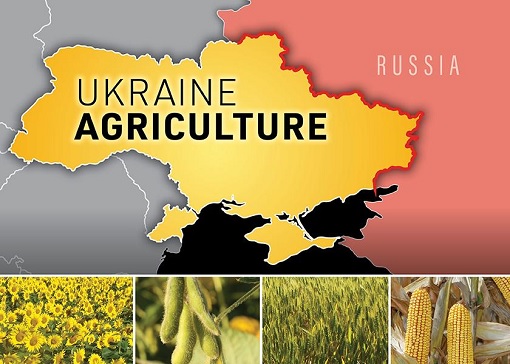
The first part involved the export of Ukrainian foodstuffs from Black Sea ports through waters controlled by Russia, allowing corn, wheat, barley and sunflower oils worth over US$5.5 billion to be exported through safe corridors. The second part involved the export of Russian food and fertilizer, which Moscow said was not implemented due to the U.S. and European Union sanctions.
Moscow said the failure of the Western power to lift the sanction restrictions saw shipping firms, international banks and insurance companies refused to deal with the Russian producers. To make matters worse, Russia’s agriculture-focused Rosselkhozbank remains disconnected from SWIFT, therefore, creating difficulties in international payments for the commodities.
The Black Sea Grain deal was supposed to tackle famine in lower-income countries such as Ethiopia, Yemen, Afghanistan, Sudan and Somalia. But Russia’s Foreign Ministry claims only 2.6% of all shipments of grain reached those countries. Almost 70% of the grain ended up in Europe and Turkiye, where surplus of the commodities were used to feed domestic livestock instead of poor people.
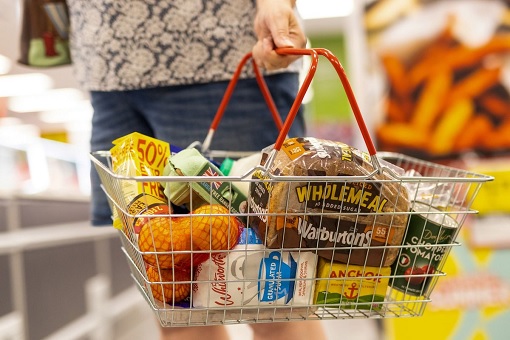
Ukraine alone had created a food supply nightmare to not only Europe, but the U.S. and the world. Both Russia and Ukraine are huge producers of agricultural products like wheat, barley, grains and rye badly needed by Europe. Ukraine is the fifth largest exporter of wheat – 7% of global sales. Because 71% of its land is agricultural, Ukraine is considered the “breadbasket” of Europe.
While Russia is the world’s biggest exporter of wheat (18% of global exports), Ukraine is the biggest exporter of seed oils. With the Russian controlling the Black Sea, 95% of Ukraine’s wheat cannot be exported when the war broke out – creating a global shortage. Combined, Russia and Ukraine exported more than a quarter (25.4%) of the world’s wheat, ingredient to make bread, noodles, pastries and cereal.
Sunflower oil is the world’s third most traded vegetable oil after palm and soybean oil. And Ukraine and Russia accounts for 46.9% and 29.9% respectively of global exports of sunflower oil. On top of that, Ukraine is also a huge exporter of corn. But European countries were not the only one that would be affected. Middle East and Africa also rely on Ukraine’s wheat and corn.
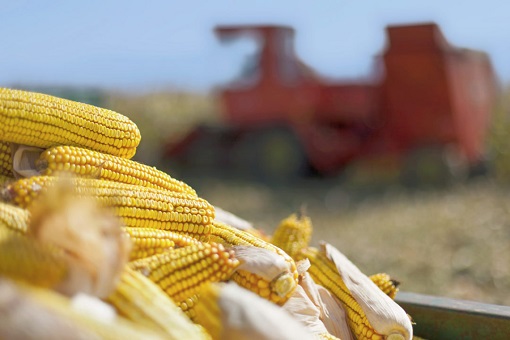
About 16% of global corn exports comes from Ukraine. So, together, Russia and Ukraine supply more than 25% of global wheat exports, 80% of sunflower oil exports and almost 20% of corn exports. That explains why the U.S. wheat, corn and soybean prices, which were already hitting the roof, skyrocketed on Feb 24, 2022 after Russia launched an invasion of Ukraine.
Ukraine can still send its grain across its land border with Poland to Europe. However, using trains instead of ships could see only 10% of its grain exported due to limitation by transferring every trainload to another at the border. Adding salt to injury, the rail network in Eastern Europe does not have the capacity to transport to the Baltic ports and Constanta.
Most of the Ukrainian grain ended up staying in eastern European countries such as Poland, Hungary, Romania, Bulgaria and Slovakia instead of being transported and distributed further. It has caused local food prices to crash. This explains why the European Union has banned Ukrainian grain imports to the five EU countries after it flooded the local markets and damaged farmers’ businesses.
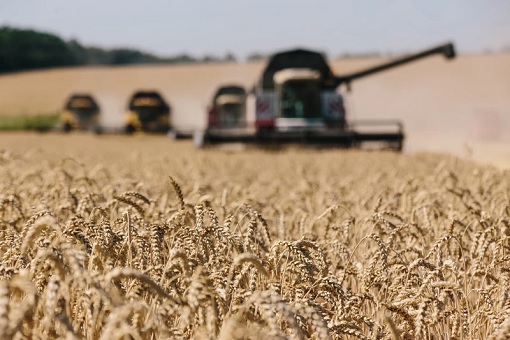
Even before the latest retaliation from Russia to terminate the grain deal, the European Union has extended a ban on Ukrainian grain imports until September 15 following anger and protests from Polish farmers who were left with unsold grain or forced to sell it cheaply when faced with lower Ukrainian prices. The EU had to choose between protecting Polish agriculture or Ukrainian grain.
Based on data from the United Nations and Ukraine’s Ministry of Agriculture and Customs Service, Ukraine stands to lose about US$500 million per month if the grain deal with Russia is terminated. Of course, the European Union has condemned the Kremlin’s withdrawal from the agreement as it would lead to food price increases and inflation, which the West is still struggling to tame.
But Moscow also knew its move will create a huge problem for the U.S. and E.U. Hence, it has argued that while the deal has benefited Ukraine, Western sanctions have restricted the sale of Russia’s agricultural products. So, why should Russia continue with the unfair deal? The withdrawal of “safety guarantees” means the northwestern Black Sea would again be designated an area of temporary danger to shipping.
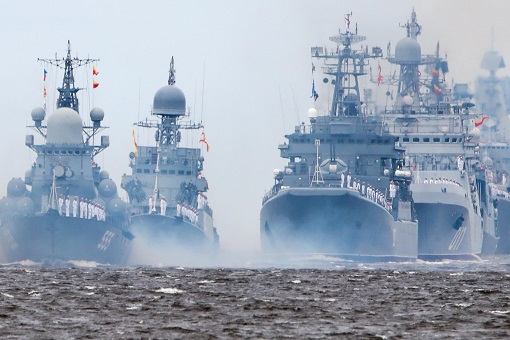
In truth, the deal had been extended several times. Russia had been saying for months that conditions for its extension had not been fulfilled. It has not even started weaponising its wheat exports. As the world’s largest supplier, President Vladimir Putin could impose and export tax increase on wheat to help finance its military operation in Ukraine, as well as to punish the West by pushing inflation.
More importantly, Moscow’s move could be a deliberate strategy to force countries in Africa and the Middle East to buy Russian wheat instead of Ukrainian grain. War risk insurance premium is expected to increase and shipping companies might be reluctant to enter the war zone without Russia’s agreement. Like it or not, Russia has shown it still has many cards to play.
Other Articles That May Interest You …
- A Photo-Op Drama – How President Biden Made A Surprise Trip To Ukraine “After” Getting Permission From Russia
- Proof British Navy Blew Up Nord Stream – PM Truss Sent Text Message “It’s Done” To Secretary Of State Blinken After Attacks
- Europe’s Fake Solidarity Cracking – Panic & Social Unrest Began As Putin Says “No Gas” Until Sanctions Lifted
- Moscow & Beijing Laughing All The Way To The Bank – How China Makes Easy Money Reselling Russian Gas To Europe
- The Worst Is Not Over Yet – Why Inflation & Recession Are Still Alive And The Global Economy Is Still In Bad Shape
- A Shift In Propaganda To Damage Control In Washington – Why President Biden & Western Media Making U-Turn Now
- Economic & Financial Meltdown Is Here – All Signs Lead To Recession, Stagflation, Jobless And A Repeat Of Dot-Com Bust
- Russia Cuts Off Gas To Poland & Bulgaria – European Gas Jumps 24% As Putin Starts Punishing “Unfriendly Countries”
- U.S. Sanctions Fail – How Russian Currency Emerges Stronger Than Pre-War With A New Gold Standard
- Pay Gas In Ruble Or Else – Europe In Serious Trouble As Putin Retaliates Against Western Sanctions
- From Wheat To Oil & Gas – How Russia Invasion Of Ukraine Affects Europe’s Food Supply, And Even Your Loaf Of Bread

|
|
July 17th, 2023 by financetwitter
|


|

|

|

|

|

|




























Comments
Add your comment now.
Leave a Reply